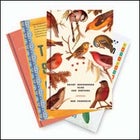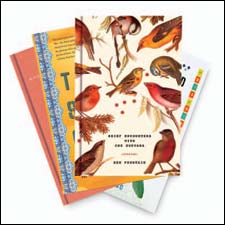IT’S A TRUISM THAT when you travel, you discover as much about yourself as about the places you go. But what if you don’t like what you see? When confronted with temptation, corruption, or pure evil, will you become a better or worse person? This conundrum is posed by four new works of fiction in which travelers, caught between the beauty and violence of distant lands, get tested to within inches of their lives.
Creature Feature
We’ve all had trips that turned into nightmares. But adventure and horror have been crossing paths a little more frequently lately, with films like Hostel and Wolf Creek scaring the bejesus out of us. Now comes The Descent, the latest scarefest from British director Neil Marshall (Dog Soldiers). The film, opening in U.S. theaters August 4, follows a group of female spelunkers who get trapped in a labyrinthine Appalachian cave system. Expect rappelling, rafting, and climbing┬Świth a healthy dose of claustrophobia. Oh, and watch out for the cave-dwelling man-bats: gruesome, Gollumesque carnivores who try to pick off the cavers one by one. What’s a horror movie without man-bats? ┬ŚAnthony Cerretani
Dallas-based Ben Fountain writes deftly about fear and disorientation abroad in his first story collection, Brief Encounters with Che Guevara (Ecco, $25, ). In “Near-Extinct Birds of the Central Cordillera,” a young American ornithologist is held captive by Colombian rebels for more than a year. Initially he’s cavalier about his situation; that changes once he realizes that the patch of jungle surrounding their remote guerrilla camp is home to one of the world’s last populations of crimson-capped parrots, and he may be the only person who can save them. In “The Lion’s Mouth,” an aid worker in civil-war-torn
Mortimer of the Maghreb (Knopf, $24, ) is a fine, globe-spanning debut story collection by Henry Shukman, a British writer living in New Mexico. In “Darien Dogs,” a corporate hack negotiating an oil pipeline in South America discovers how empty his life in New York is. And in the title story, a has-been reporter drums up a supposedly glamorous assignment on the front lines of a tribal conflict in North Africa. But what he finds there is a hollow, media-ready theater of war and more of his trenchant self-loathing┬Śall of which Shukman renders in dark, satisfying sentences. “He remembers his wars being in beautiful landscapes, among mountains and valleys and rivers. This was different. A construction site with no construction, an emptiness without end.”
The Sand Caf├ę (PublicAffairs, $25, ), an incisive roman ├á clef from New York Times Middle East correspondent Neil MacFarquhar, follows jaundiced wire-service reporter Angus Dalziel as he and his colleagues await the sputtered start of the first Persian Gulf war. The journalists are holed up in Saudi Arabia’s Dhahran Palace hotel, and the military dictates their every move┬Śexcept for their frequent bed hopping. In his own suite, Angus prefers a Christiane Amanpour┬ľlike cable-news dominatrix, and he thinks he might be falling in love. His chief rival for her affections is a swarthy TV producer. Can any of them transcend their own outsize egos to connect in a meaningful way with the foreign culture, much less each other? The plot is slight, but MacFarquhar’s cynical take on the military and the media┬Świth their “usual practice of paying someone with a headdress and a flock of sheep to amble into the background”┬Śrings true.
Finally, Ngugi wa Thiong’o considers the moral pitfalls of imperialism from the other side, sizing up the puppet regime of a fictional African dictator. Part fable, part satire, Wizard of the Crow (Pantheon, $30, ) is the latest novel from Kenya’s famously exiled writer; the 766-page epic follows the travails of a man known only as Ruler of the Free Republic of Aburiria as he bullies his nation and, hoping to build the tallest tower in the world, grovels before the Global Bank to secure a loan. Ngugi masterfully fleshes out his antihero as a blustery megalomaniac: “When he saw that his signature on paper or a word from his mouth could bring about the immediate cessation of a life, he there and then truly believed in his omnipotence.” Soon the Ruler’s body swells in proportions to match his ego, and only a witch doctor can save him. Ngugi writes with bite on contemporary African themes like corruption and sexual discrimination, but he isn’t caustic or heavy-handed. It’s magical realism meets Africa, and it hits the mark.


